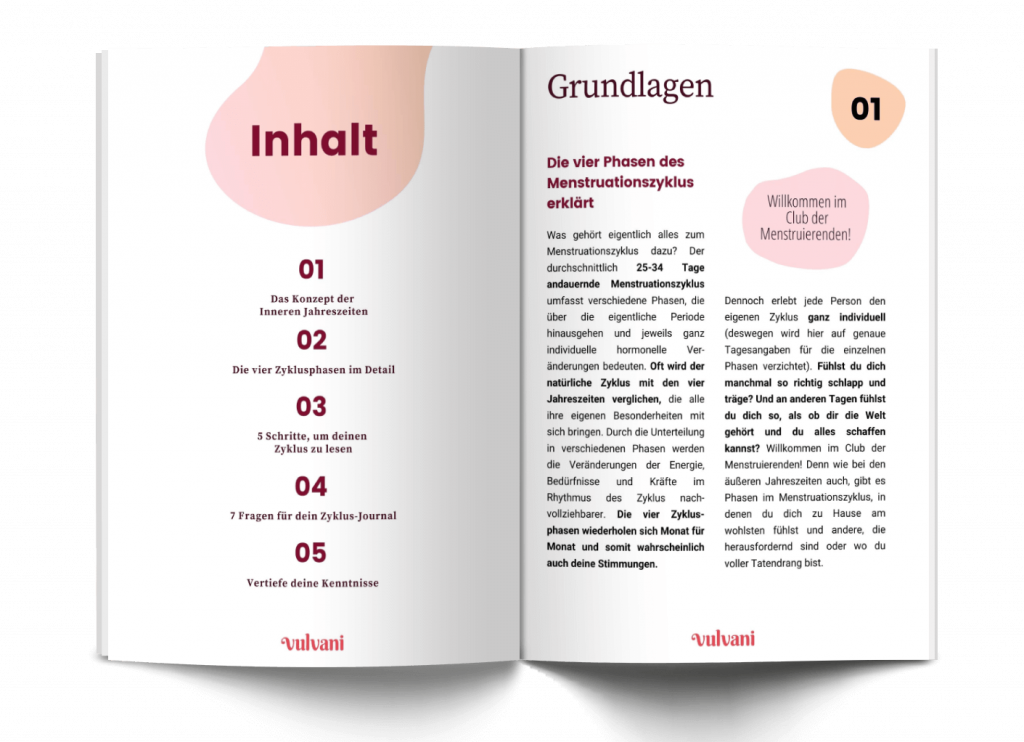
Discovering your menstruation as a spiritual practice
Yasmine understands her menstruation as a spiritual practice and shares in this interview how she is connecting more with her own body through cycle awareness.
Innovative measures, new initiatives as well as sustainable changes are needed to promote a change towards more openness and acceptance of menstruation within a corporate culture. From top managers to employees, everyone must work on this together. This process includes trainings to be more empathetic when it comes to periods in the workplace. The aim is to develop simple and cost-effective strategies that have a positive impact on employee satisfaction and loyalty.
The first step towards a period-friendly corporate culture should be to consciously include menstruation in the work structures. This means including the related menstrual cycle as well. This goes hand in hand with the acceptance of the needs of menstruating people. And thus the right to well-being at work for all. But what could such a concept actually look like in today’s world? A menstrual policy or period guideline would probably be a good start. In the following we will explain which three aspects these should definitely include. Ready for a guide of measures for a period-friendly corporate culture?
The reinterpretation periods and the resulting change of the negative attributions must be addressed together. The most important thing is that everyone puts aside their embarrassment and fears of using the term menstruation. And simply call it by their name: Period. Everyone must feel comfortable talking about their menstruation, even when they are at work. However, discarding shame does not happen by itself and especially not overnight. The normalisation of periods includes, for example, discussions, education and workshops. These are ways to promote not only period knowledge but also more respect and inclusion in the workplace. All of a sudden the hidden problem is no longer so taboo and if it is talked about openly, new solutions can be found together.
A period-friendly working environment starts with the equipment of the toilet facilities. A basic requirement is that free period products are available in the toilets (regardless of gender) at all times and in sufficient quantity. After all, access to menstrual products is essential in order to be able to manage one’s periods with dignity and to promote greater equality and acceptance. The availability of free period products is also a measure against period poverty, because not everyone can afford period products. The supply of free products therefore also promotes social participation and inclusion of all. It is best to provide different types of periodical products, as some people cannot or do not want to use some products for medical or religious reasons. Disposable products are the first step.
However, it would also be desirable to conduct regular surveys on consumer behaviour in order to be able to respond even better to the needs of menstruating employees. Perhaps sustainable products, such as period underwear or menstrual cups, could also be another idea. Running water, soap, toilet paper and waste bins for disposing of disposable period products in all toilet cabins should of course be available as well. However, this should actually be a given. A next step could also to consider whether gender-neutral bathrooms are another way of achieving greater inclusion within the company. Unisex toilets have become standard in public transport, such as trains or planes. So why not in the office?
Flexible arrangements in terms of places and times of work should be implemented for all, if possible. Say hello to remote work and flexitime! The possibility of working flexibly, for example to rest when menstrual problems are more severe, can significantly improve the working day of a menstruating person. Sometimes it is enough just to be able to work from home in comfy pants (plus a hot water bottle) or with longer breaks or to come into the office an hour later. A flexible work schedule can be invaluable in such moments, as it allows employees to work more when they feel good and work less when they feel tired. If we listen to our body and take breaks when needed, we can recover more quickly (aka less menstrual pain).
It is often possible to avoid taking painkillers or alternatively a whole sick day by changing the general work conditions and thus adapting to the (possibly slightly) changed physical needs. Of course, there should always be the option to call in sick if period pain is too severe. The possibility to work more before or after the period also strengthens the employees in their self-determination and takes away the shame of calling in sick because of one’s period. In other words, this is a corporate culture of trust and self-determination, where all the to-do’s are still done at the end of the month anyway. Maybe just not during the classic 9 am to 5 pm office hours from Monday to Friday. Depending on the job, it could also be helpful to take the menstrual cycle into account when planning the work schedule.
What does the situation at your company look like? Is the period still not talked about? Or are there maybe already measures and initiatives to normalise periods in the workplace? If not, do you have any ideas on how to make your company more period-friendly? Feel free to share your experiences and suggestions in the comments below or send us a message. We are looking forward discussing this topic further with you.



Yasmine understands her menstruation as a spiritual practice and shares in this interview how she is connecting more with her own body through cycle awareness.

What options are there for male birth control? Ailsa delivers an overview of what is available now, and what may come in the future.

Sustainable underwear? The founders of TUKEA talk about fair labour conditions, body diversity and body literacy.
…and empower countless women to make empowered choices about their bodies!

